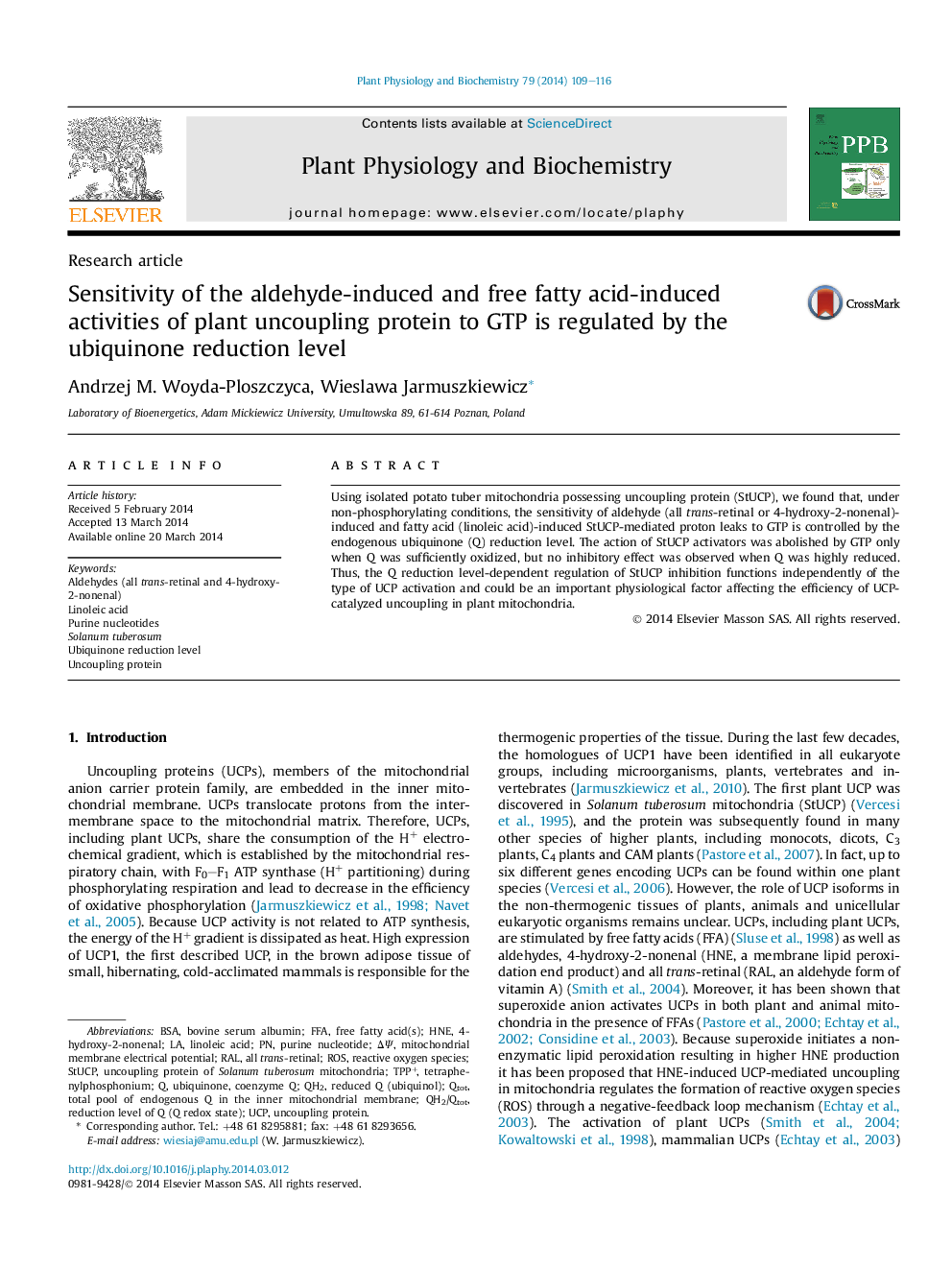| Article ID | Journal | Published Year | Pages | File Type |
|---|---|---|---|---|
| 2015723 | Plant Physiology and Biochemistry | 2014 | 8 Pages |
•Plant mitochondrial induced H+ leak was studied under non-phosphorylating condition.•GTP-sensitivity of retinal and HNE-induced H+ leak is controlled by Q redox state.•GTP-sensitivity of linoleic acid-induced H+ leak is controlled by Q redox state.•The H+ leak was inhibited by GTP only when Q was sufficiently oxidized.
Using isolated potato tuber mitochondria possessing uncoupling protein (StUCP), we found that, under non-phosphorylating conditions, the sensitivity of aldehyde (all trans-retinal or 4-hydroxy-2-nonenal)-induced and fatty acid (linoleic acid)-induced StUCP-mediated proton leaks to GTP is controlled by the endogenous ubiquinone (Q) reduction level. The action of StUCP activators was abolished by GTP only when Q was sufficiently oxidized, but no inhibitory effect was observed when Q was highly reduced. Thus, the Q reduction level-dependent regulation of StUCP inhibition functions independently of the type of UCP activation and could be an important physiological factor affecting the efficiency of UCP-catalyzed uncoupling in plant mitochondria.
